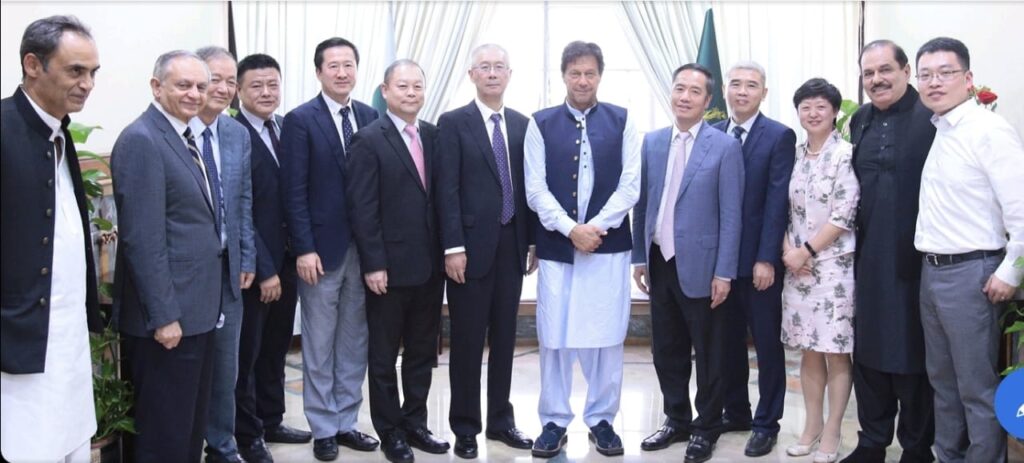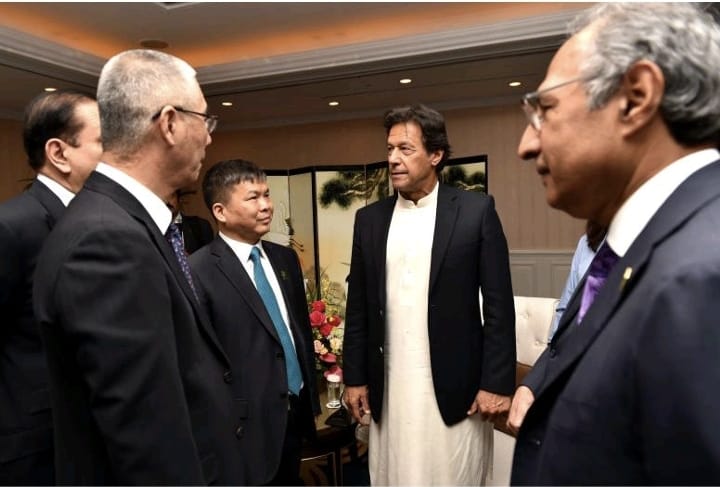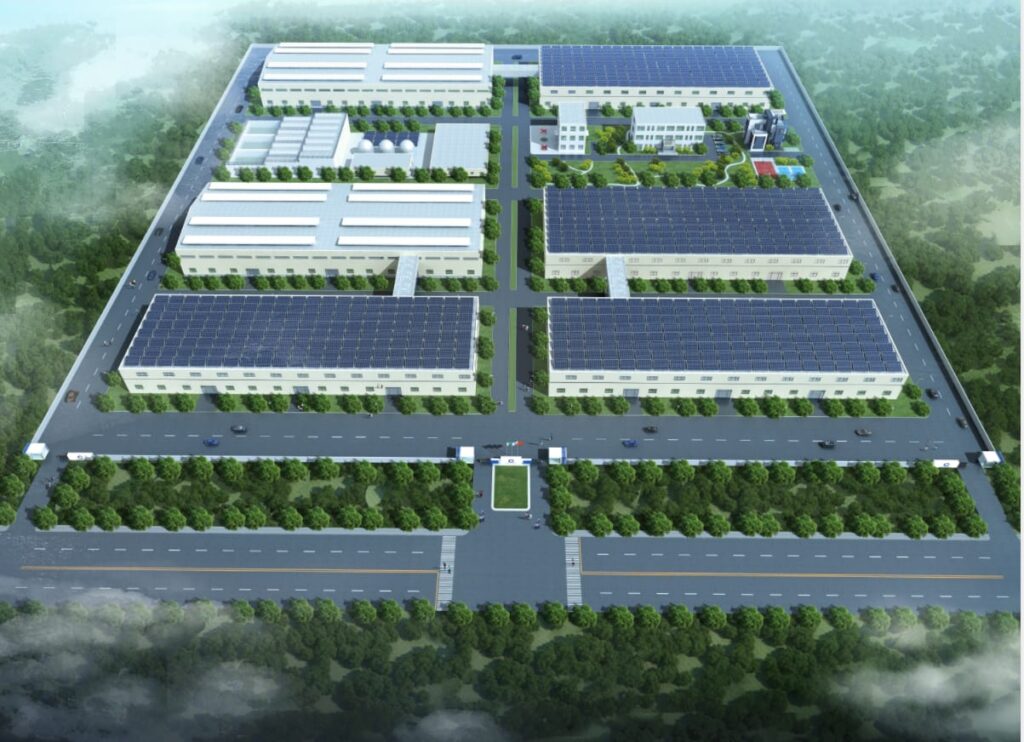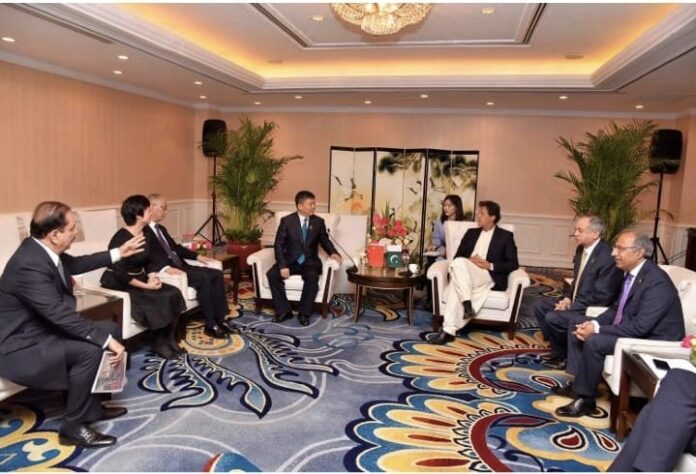LAHORE: In Pakistan, one of the answers to the country’s persistent economic problems that many have touted as game changing are Special Economic Zones (SEZs). SEZs are designated areas in which the business and trade laws are different from the rest of the country. SEZs are located within a country’s national borders, and their aims include increased trade balance, employment, increased investment, job creation and effective administration.
Again, this is the textbook definition of SEZs. In Pakistan, the reason they are even more important are because they are at the center of the China Pakistan Economic Corridor (CPEC). The SEZs along CPEC routes and at crucial points, particularly in the North, not only have different laws, but have been massive undertakings in setting up infrastructure, housing, power, markets, communication systems, and anything else that might be needed to turn these SEZs into juggernauts of economic growth.
These SEZs are supposed to give Pakistan a new industrial identity, in which the country is supposed to stand side by side with Chinese companies to embark on exciting new economic activities in these zones. There are a number of opportunities available for Pakistan to capitalize on with these zones, especially in partnership with China.
For this article, we want to look at a new business venture that is hoping to capitalize on the SEZ model. While the company in question has a definite Chinese connection, it is by no means a part of CPEC and is a private undertaking. Challenge is a Chinese company operating in different parts of the world and has a number of umbrella organizations working underneath it.
The interesting thing about Challenge is its customers. Already, even though it is new to Pakistan, thanks to their Chinese affiliation Challenge Textile has among its customers global clothing and accessories brands Adidas, Icebreaker, Polartec, The North Face, Smartwool, Uniqlo, Primaloft and very recently, Reebok.
With these companies as their customers, Challenge has already made contributions to Pakistan’s export friendly outlook, by exporting textile products worth $45 million each year since it started operations in Pakistan. Now, they want to get permission to set up their operations into an SEZ, which may result in another boost to Pakistan’s export goals.
Even more importantly, Challenge brings to Pakistan a different kind of company. You see, all industries in Pakistan have a horrible habit – demanding things of the government as if they are their God given rights. This tradition of whining in all Pakistani industries makes for painful copy when you interview a CEO or an association chairman.
But Challenge is different because they are not asking for anything, but only showing what they have managed to do up until now. Instead of demanding favours, they try to focus on what they can bring to the table in Pakistan. What they claim to bring now, especially if they get their SEZ, is $1 billion in exports. Here is what they are all about.
The company in question
How has the Challenge Group managed to attract high profile customers like Adidas and The North Face? Well, before operating in Pakistan, the group has been one of the most acclaimed, well recognized and lauded apparel producing companies in China. Essentially, the business is that they produce quality apparel that big name brands like Adidas would be happy slapping their name on and selling.
The group deals mostly in outdoor and sports apparel, and has been in the technical circular knit business for two decades, starting out in 2001. Circular knit is made with a machine that knits the fabric in a continuous circle (tube); the weight is “light.” The fabric is thin. T-shirt fabric is the best example of circular knit fabric. All of these qualities make circular knit products ideal for sportswear. They are capable of producing the lightest and finest items that are required in the market.
In China, they have been declared one of top three most innovative companies in the textile industry because of their creative product lines. China’s ministry of industry and information technology has also declared them one of the four most sustainable companies in the textile industry.
In coming to Pakistan, the company has shown great trust in the market, and has seen the potential that Pakistan has as a textile exporter. Their investment through Challenge Fashion has been significant, but what is even more heartening is that the investment seems to be a long term one.


Currently, the group’s plan is to invest $150 million into Pakistan over the course of the next three years. This injection of investment would mean the creation of nearly 20,000 jobs in Pakistan, and exports worth $1 billion over the next five years that would help Pakistan’s balance of payments significantly.
The company’s argument, as it has been communicated to Profit, is that they are exactly the kind of company the Pakistan government wants to foster, because it will be good for business and good for the country’s economy. It is a simple two way equation – the government gets an improved economy, jobs, and a company of recognition working peacefully in Pakistan, and the Challenge Group continues to churn out profits.
Currently, Pakistan’s economy needs a kick start with abundant foreign investment, and this has been the strategy of the federal government as well. This is exactly what the group brings to the table. The investment will not only improve Pakistan’s standing as a location for foreign investment and encourage others to join the fray, but it will also be a major asset for the government to have a company working with it that sees eye to eye on its vision of how to improve the economy in Pakistan.
That is why the company now wishes to build a Special Economic Zone. Now, a single company getting one and for something like apparel would be interesting, especially since they are asking for one very close to Lahore. However, this is exactly the kind of innovation that was the hallmark of the group in China as well, and what won them all of their major clients.
By making an SEZ in the vicinity of Lahore, according to the company, they will be encouraging other national and multinational business groups to expand in Pakistan. Other than the growth of foreign investments and a better balance of payments, the forming of this SEZ, as with most SEZs, hopes to bring about modernization in the industry in Pakistan because of increased competition.
It will also quickly develop and urbanize areas surrounding the 80 acres of land on which the group is planning to build their SEZ. This will also result in a higher standard of living in these areas, and encourage people there to set-up ancillary businesses.
Viability of the SEZ
Every district of Pakistan has an industrial estate or area with infrastructure that offers a variety of benefits. In Punjab, there are 26 industrial estates, 30 in Sindh, seven in Baluchistan and 12 in Khyber Pakhtunkhwa. The problem on evaluation, however, is that these estates are failing miserably. They have been badly placed in remote areas, and because there are no incentives to move there, a lack of skilled labour and basic facilities plagues these estates.

These estates were an early precursor to SEZs. Some of them have been more successful, mostly the ones in larger cities that have significant populations and facilities. Perhaps the best example is Sialkot, which is famous for its sports goods and surgical instruments. The reason Sialkot has become famous for these products is exactly because it is a special industrial estate. The same goes for Faisalabad and textiles and engineering related products in Gujranwala.
Now, SEZs are planning to improve on the industrial estates model. Under the current SEZ act, the Federal or Provincial Governments themselves or in collaboration with the private sector under different modes of public-private partnership or exclusively through the private sector. The fiscal benefits under the SEZ law include a one-time exemption from custom duties and taxes for all capital goods imported into Pakistan for the development, operations and maintenance of a SEZ (both for the developer as well as for the zone enterprise) and exemption from all taxes on income for a period of ten years. For any business looking to set up at low cost, this is a great deal. These SEZs, according to the act, need to be set up in an area of at least 50 acres, with no maximum limit.
The group fulfils these requirements, and is also setting up close to Lahore, which should keep them away from worries of falling to the problems of the old industrial estate model.
The company already has 80 acres of land near the Lahore-Kasur road that they want to dedicate to the development of an SEZ. The area is well above the required area for an SEZ, which means that there will be more than enough space for related businesses to also set up in the area eventually. However, the land is currently categorized as agricultural land, and is yet to be converted to Industrial land by the Lahore Development Authority. The company is now looking to get this final step done and dusted.
In a recent letter to the Prime Minister, the company pointed out that as per the promise of their Chairman in China, Mr Huang, back in April 2019, Challenge Fashion has already begun the process of setting up a state-of-the-art knitting, dyeing, and apparel manufacturing park in Pakistan. According to the letter, in addition to their initial investment of $50 million, the company is getting ready to put in another $100 million into Pakistan over the next three years.
Up until now, the project has progressed at a breakneck speed. In Phase one of their attempt, in only eight months, they have been able to establish a 370,000 square feet stitching facility that houses 4000 employees. Through this new facility, their exports are already going up to $70 million from $45 million last year, and are estimated to go up to $100 million next year if work continues at this rate.




